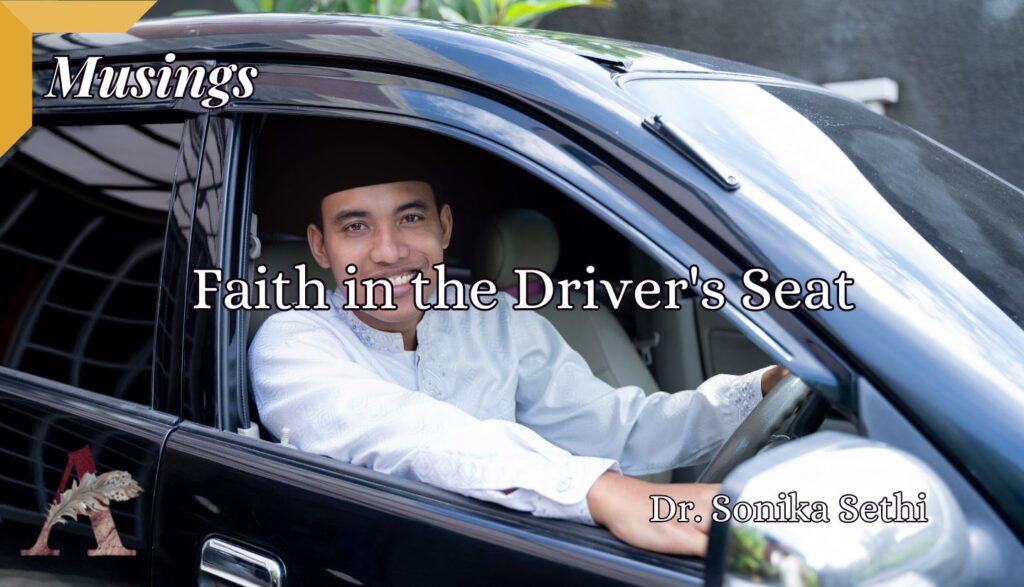
Jasraj has been our family’s driver for the past five years, recommended by a colleague from my college. When I first saw him standing in front of our house, I noticed that he was a Sardar who wore a saafa around his head instead of the usual pagdi. Neither I nor my family inquire about a person’s religious preferences before employing them.
Within a few months, Jasraj earned the trust of most family members with his unwavering loyalty and punctuality. If I asked him to arrive at 9, he’d be there at a quarter earlier, without fail. He never refused to work, even when called upon on holidays, and was always willing to ferry my children from their hostels or the airport. He had no qualms about working late at night or coming in the wee hours to drop my husband at the airport for an early morning flight.
While Jasraj was always respectful towards us, he occasionally hesitated when greeting family members. I noticed that he struggled to say ‘Namaste’ when I sat in the car. Sensing his discomfort, I started greeting him with ‘Sat Sri Akal Jasraj Ji,’ adding the respectful suffix ‘Ji’ as he seemed older to me with his white beard and hair peeping out from under his saafa. To my surprise, my ‘Sat Sri Akal’ also met with the same muted response as ‘Namaste’.
Soon, we uncovered a disturbing pattern with Jasraj. As his primary responsibility was to transport me to college and back, he was expected to remain on campus after parking the car. However, on several occasions, he would disappear from the college for around two hours and would not answer my calls. When I asked him about his truancy, he would sheepishly provide excuses, claiming he had gone to meet someone, had visited the hospital to get medicine, or had to run some errands. Once or twice I lost my cool when I had an emergency and could not reach him.
Two years ago, he requested that he had to go somewhere for a month so he needed an off. He made sure to provide us with a replacement during the said period. When he returned after a month, navratras were in full swing. My mother-in-law offered him tea and snacks in the morning, which he refused saying that he was fasting. Mother was impressed with his devotion towards the goddess Durga. However, after navami, when Mother offered him tea, he still refused, saying that he had two more fasts to go. It was then we discerned that he wasn’t fasting for navratras but he was observing rozas during Ramazan. Jasraj was a devout Muslim!
We didn’t question him for his faith but dutifully gave him an off on Eid. The next day, Jasraj brought us sewayian and biryani, which we relished to our heart’s content. A pleasant change was witnessed in his behaviour. Every Friday, he would notify me that he was going to the nearby mosque to offer jumme ki namaz and would be back before it was time for me to leave the college. That perfectly explained his habitual absence from college.
This year, Jasraj came to greet us on Eid in his lace-trimmed skull cap instead of saafa and we could tell that he was coming straight after offering namaz. He had a tiffin carrier in his hand which he offered me. Seeing my reluctance he said, “Madam Ji, I know navratras are on. So, I didn’t bring biryani. This is sewayian for the entire family.” I gratefully accepted the tiffin and wished him ‘Eid Mubarak’.
Dr. Sonika Sethi
